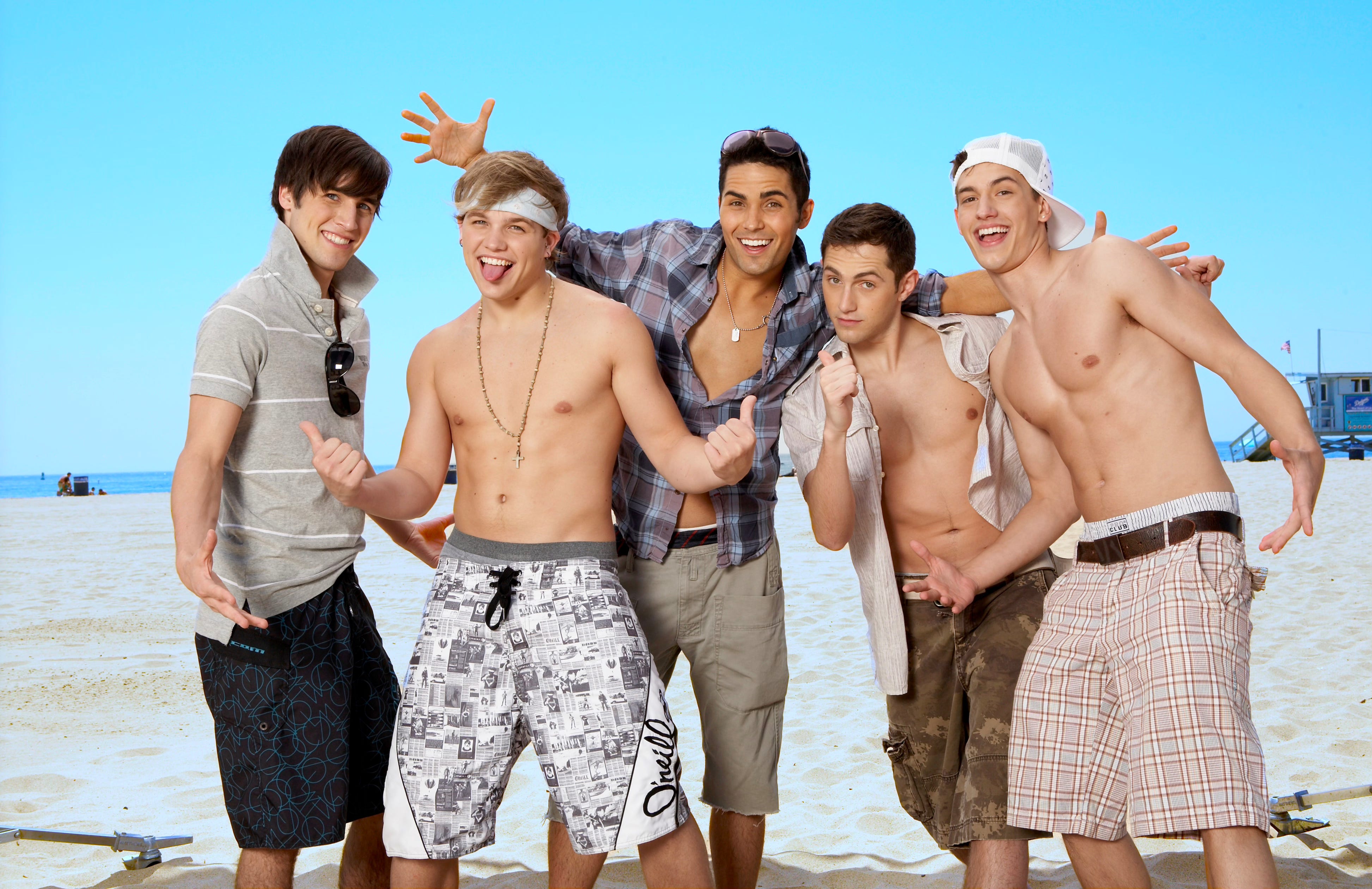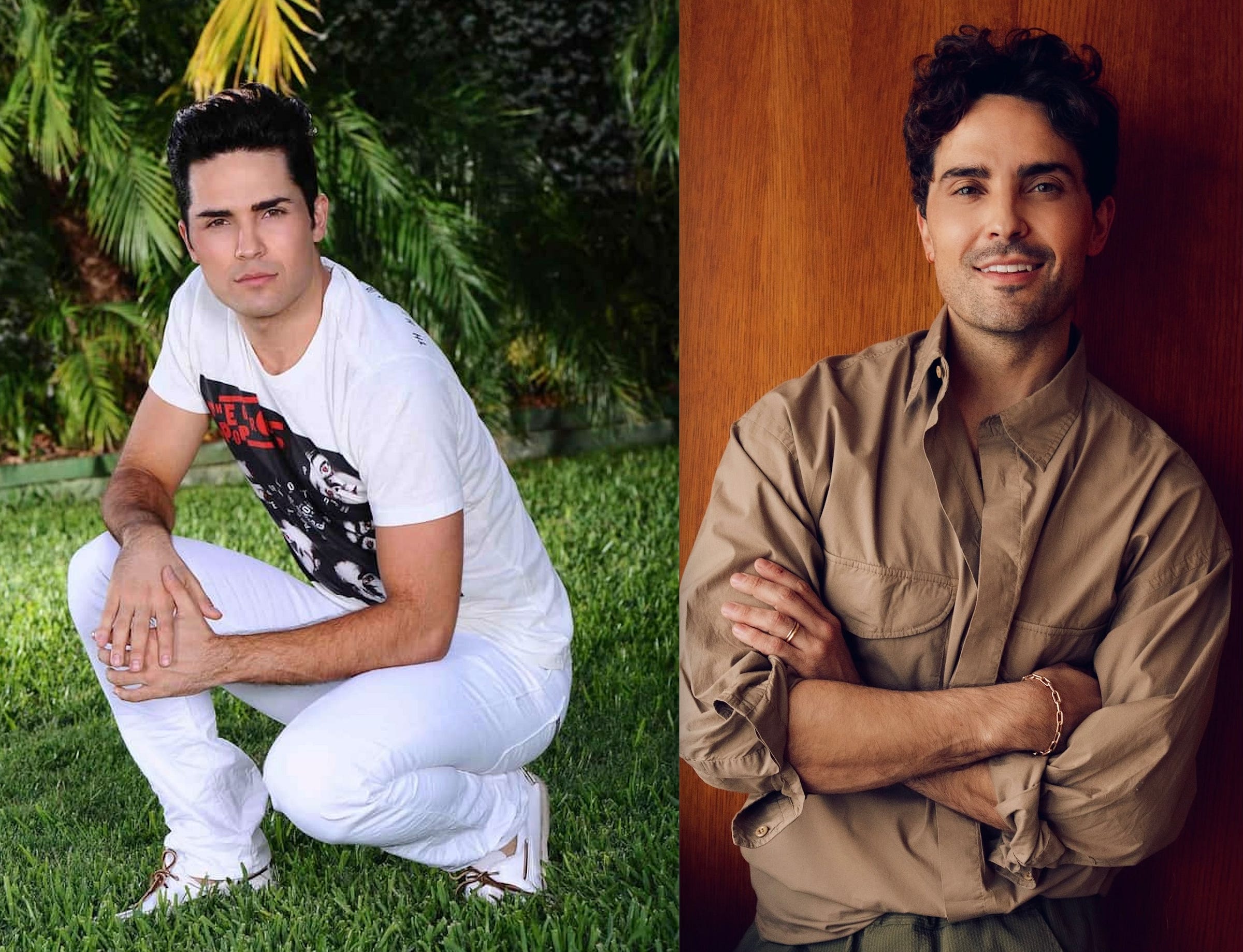The Boy in the Band: Catching Up with Nathaniel Flatt
In 2008, he was a rarity — an out gay member of a bona fide boy band. In our Q&A, Flatt talks highlights, unique pressures and being guided by the late Tommy Page as a member of V FACTORY.

In 2008, I was editor of a teen-entertainment magazine I created called Popstar! Think: Tiger Beat, but all-color, and with a bit more diversity. We had chugged along since 1998, building a reputation as a squeaky-clean publication safe for tween readers and for young talent alike. We weren’t going to ask invasive questions. No point in pulling a gotcha on a kid just because they were on TV or in a band.
But things were beginning to change. Venerable mainstream publications like Us Weekly and People were picking up on the fact that, more than ever, teen stars were a part of their bread and butter.
Those magazines did things a teen mag could not — like demanding Zac Efron pose shirtless in exchange for a cover (Rolling Stone). They weren’t only after skin. Text-wise, the major magazines were not handling these young stars with kid gloves, bluntly asking them about their state of mind, to reveal any struggles they were having with their jobs and all about their love lives.
The latter was traditionally the purview of teen magazines, especially when the star was a boy: “Are you single?” “What do you look for in a girl?” “Would you ever date a fan?”
Even these questions sometimes had me worried. Not all of the young talent we quizzed were actually children, but all of them were young enough that I hoped I wasn’t making any of them self-conscious. (One of our rivals routinely asked little girls on red carpets about their first periods.)
As an out gay man, I especially hoped that our line of questioning wasn’t giving any closeted boys more stress than they already had.
That’s why I was so amazed when the hundredth or so boy band to come into my office on a visit, V Factory, had an out gay member, Nathaniel Flatt. This never would have happened with one of Lou Pearlman’s acts, or any band put together in Orlando. Everyone in and with V Factory was so nonchalant about it, I wound up doing an interview with Nathaniel for Towleroad in 2009.
In some ways, Meeting V Factory was like meeting most boy bands — a group of five attractive, talented young guys, all good at chatting amiably with the press as if it were second nature and not influenced by months of media training. There’s no reason in the world they could not have become famous — they were adorable, they were outstanding dancers and singers, and their lead single “Love Struck” sounds like current Kpop — except they didn’t. The boy-band craze was waning, their single underperformed, a member left, and their label, Warner Bros., decided to cut its losses.
But I’ve always thought Nathaniel deserved a lot of credit for approaching his role in the band from day one so authentically. Though there are plenty of examples of boy-banders who came out after their group’s peak (Lance Bass came out in 2006, when *NSYNC was on pause) or post-breakup (Ricky Martin, decades after he’d aged out of Menudo), I’m not aware of any others in the U.S. who did it from the very beginning.
Interestingly, V Factory was the special project of Warner Bros. A&R guru Tommy Page, who himself had been a teen-mag idol associated with New Kids on the Block, one whose “I’ll Be Your Everything” went all the way to no. 1. Tommy was gay himself, and I fanboyed out when he accompanied V Factory on their office visit. He seemed delighted I was so in love with his debut album (one of the best of the ‘80s) and receptive when I urged him to resume his performing career. He did so, on an Asian tour, but tragically took his own life in 2017 just before his 50th birthday.
Tommy is not here to walk us through the special challenges he faced, but I’ve long wanted to revisit some of the acts I interviewed back in the day to see how they have adjusted to life after fame — or the pursuit of it — has ended.
Nathaniel was at the top of my list.
How are you?
Good. How has your past decade been? [Laughs]
Well, it's nice to hear your voice, to reconnect and to get to do an interview where you don't have to worry about what little girls will think.
Yeah. [Laughs]
Let’s start with a recap of what you’re up to these days.
Wow — I'm going to be 44 next week, so that's on my mind currently. I'm actually sitting in my office as a therapist. I facilitate a lot of psychedelic-assisted therapy. After we finish up, I'm going to lead somebody through a ketamine session. That's the bulk of what I'm doing. I'm fortunate that it's a cutting-edge, very L.A. niche-y thing that people spend money on. It lends itself to a lot of creatives and artists that are trying to access themselves in a deeper way, which is part of their creative process. I find it super fulfilling in a creative way, scratching that itch, being able to, I guess, make a living and support myself and also help people get in touch with that part of themselves.
Were you trying to get in touch with yourself by exploring this field?
Sure. After the record-deal phase, there was a bit of a crisis of identity or just like, “Okay, well, I've done this really cool thing that not a lot of people can relate to and gotten so close, but not really sinking your teeth in.” It's like, “Well, what do I do now?” and sitting on many therapists' sofas for a long time, just contemplating what that would look like. I don't want to exaggerate that I was in this terrible, deep depression; it was also a phase of life. In your mid-20s, it’s, “What am I actually wanting to do?” I like talking and I liked going to therapy, so I wondered what it would be like to be a therapist.



